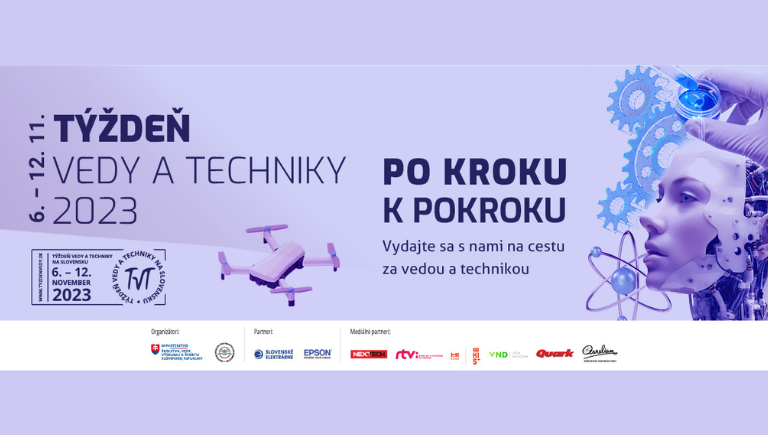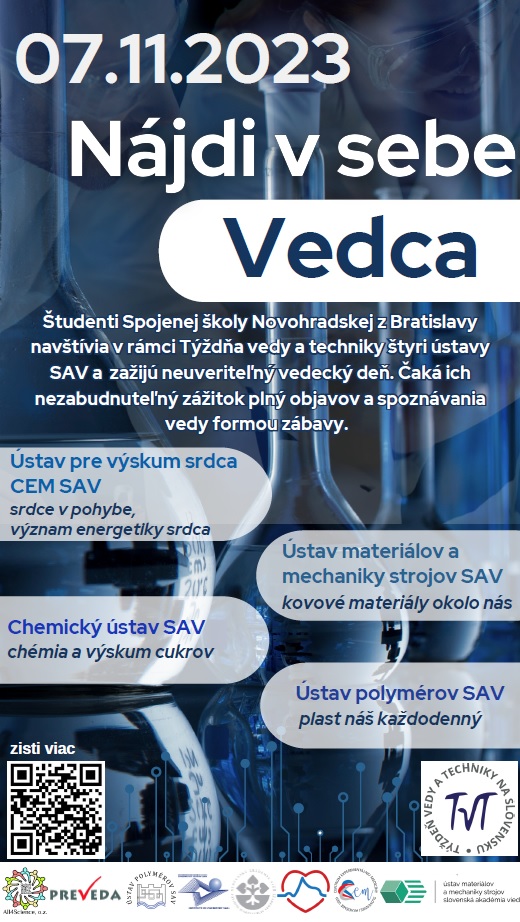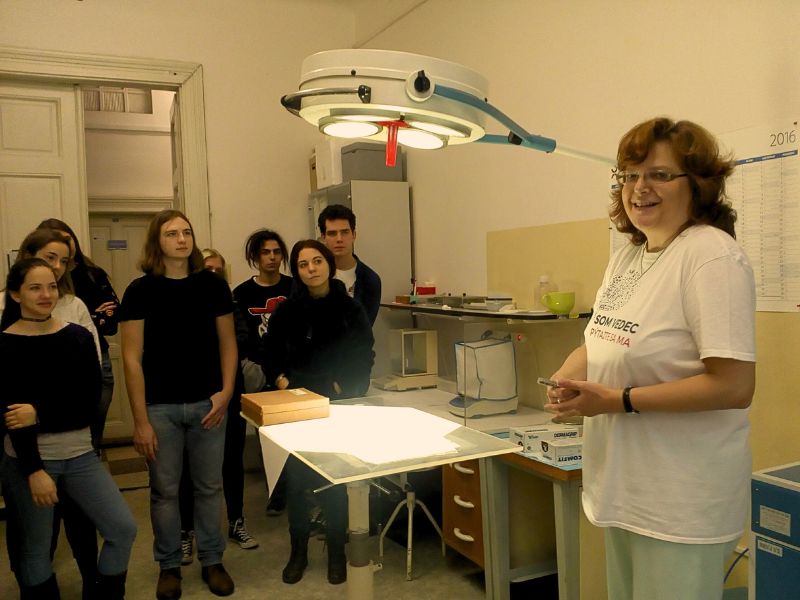
Every year, the Centre for Experimental Medicine of the Slovak Academy of Sciences (CEM) introduces its activities to dozens of promising young scientists. This year, the open days in 2 CEM institutes are also linked to the Week of Science and Technology (6-12 November).
Students from the Novohradská School in Bratislava will also visit the Institute for Heart Research as part of Science and Technology Week. Already on 7 November, they will experience an unforgettable scientific day full of adventures, discoveries and fun learning about science in the framework of the famous educational event “Find the scientist in you”.
At the Institute of Heart Research, they will carry out some exciting experiments and learn more about the most crucial organ in our body – the heart. They will find out how it uses energy to function, listen to the heart rhythm and how it changes during physical activity and rest. Looking inside the heart will help young people understand how the heart works at a molecular level.

The day after, on 8 November, the Institute of Normal and Pathological Physiology will present its activities to all interested people. The open day will start with a lecture at 9:00 a.m., which will take place in the conference room at Sienkiewiczova 1 in Bratislava.
Dr. Andrea Mičurová will present the lecture “Stress – a good servant but a bad master”. The talk will highlight positive stress, which is necessary for life, stimulates higher performance and helps people to overcome obstacles of various types. However, the impact of stress on the organism depends mainly on its intensity and duration. Prolonged exposure to stress is considered to be problematic, as excessive production and release of stress hormones cause damage to various tissues and organs. The World Health Organization classifies extreme stress as one of the most severe health risks, with long-term stress being one of the major contributing factors to the development and progression of several chronic diseases. Excessive long-term stress also affects the function of the heart and blood vessels and can lead to an increase in blood pressure. It is, therefore, crucial to know the harmful effects of stress on the body and how to prevent these negative changes.

The lecture will be followed from 10:00 to 12:00 by a tour of the laboratories of the Department of Vascular Pathophysiology, the Department of Experimental Hypertension and the Department of Neurocardiovascular Interactions, which are dedicated to research on the cardiovascular system.
The Institute of Experimental Pharmacology and Toxicology is organising an open day a little later, on 5 December. Young science and research enthusiasts can, therefore, look forward to a month of activities prepared for them by CEM scientists.




